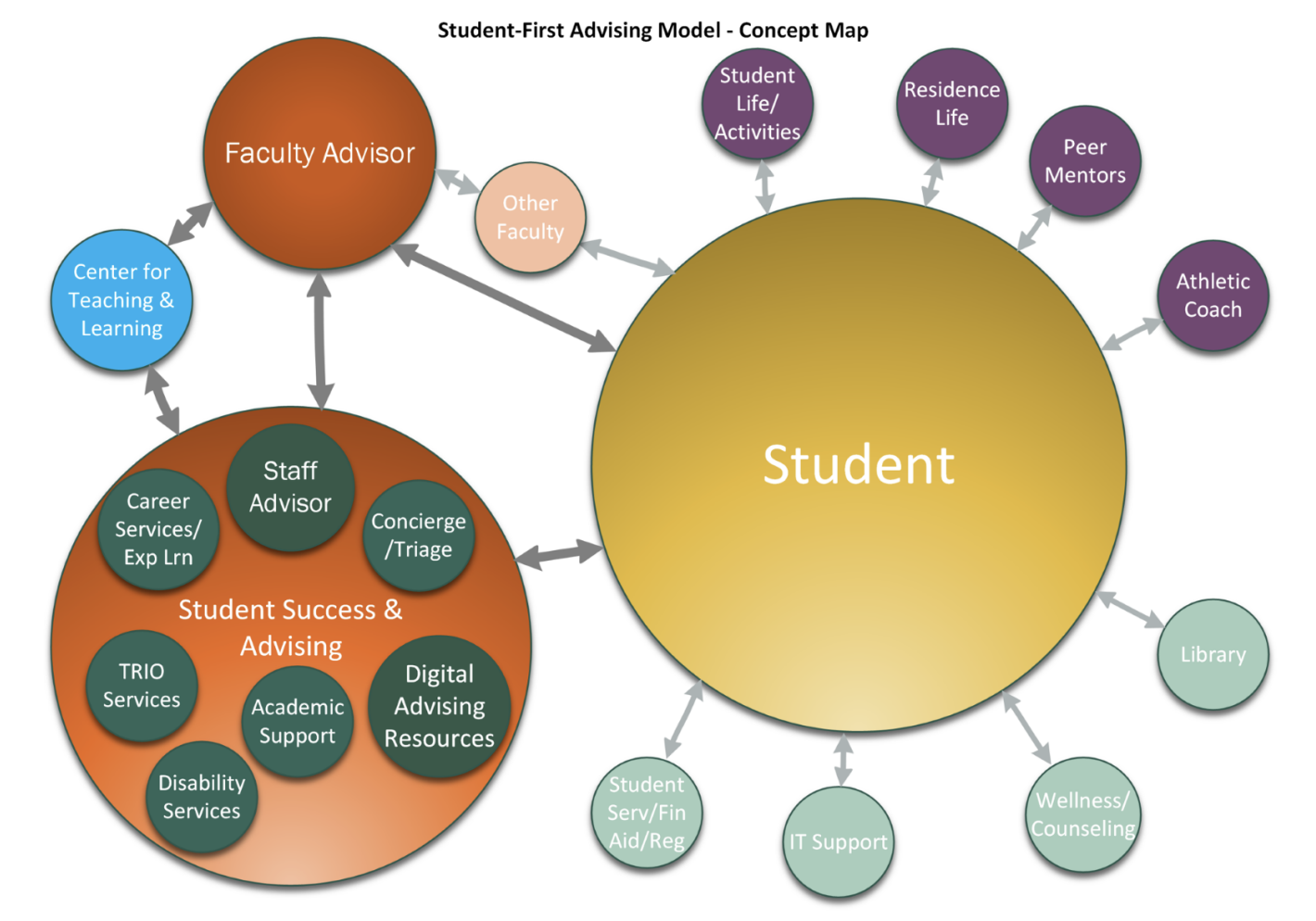If you’re an advisor, you probably saw a note appear in your advisee’s Aviso profile.
If you’re in the ASC, you probably had a student reach out to you for help.
If you’re anywhere where students are, and they trust you, they probably turned to you to seek reassurance and guidance from you.
What does it mean for a student to get placed on Academic Probation? Or to get Academically Dismissed from Castleton?
It starts with a review of the students’ academic standings at the end of the semester. (This of course can’t be done until after all the final grades are posted – so please make sure you get those in on time! Winter break isn’t that long and the rest of this process isn’t short…) A student is considered to be in “good academic standing” if they have a cumulative GPA of at least 2.00 if they have over 30 credits (or a cumulative GPA of at least 1.75 if they have fewer than 30 credits.
If the student’s cumulative GPA is below 2.00 (or 1.75 for fewer than 30 credits), that student may get put on Academic Probation, may continue to be on Academic Probation, or may even be dismissed. The full description of Academic Probation and Dismissal can be found in the Undergraduate Catalog.
So if the student’s cumulative GPA didn’t quite hit the mark, how can you help the student who is counting on you for answers?
Probation
If the student has been put on Probation or continues to be on Probation, talk with them about the obstacles they’re encountering. If you’re comfortable doing so, help the student think of ways to avoid their common pitfalls and aim for success in the class. If you’re not comfortable having that talk, help them get connected to the Academic Support Center.
The ASC is rolling out an Academic Recovery Process aimed at helping students be accountable for persistence over the semester. The student either signs up to meet with someone in the ASC several times over the course of the semester to check in OR they sign up to attend a series of informative workshops geared toward topics like time management and managing stress.
Point out that the student may want to re-take a class with a particularly low grade (we’ll talk about Grade Replacement in a future Policies and Procedures post). The important thing for them to keep in mind is that it is not impossible for them to raise their GPA and once that happens, they’ll be taken off probation!
Dismissal
A student who has been dismissed from Castleton has the opportunity to appeal that decision. Appealing requires the student to write a letter that essentially explains:
- why they want to continue their studies at Castleton,
- identifies and acknowledges the things that have happened to contribute to causing their cumulative GPA to fall either substantially or chronically below the minimum accepted level, and then
- shares their plan for how they will find academic success if re-instated.
Students are given a handout that lists the exact specifications for the letter, so if your student is asking you about the appeal process – point out that the guidelines for what to write have been given to them. Many students also benefit from having a mentor help them revise and edit that letter. The ASC is very available and willing to help students with this task! However, if you’re so inclined, you could also offer to be a reader and editor to support them.
Okay, so they wrote the appeal letter and sent it in. Now what? Within a few days of the deadline for letter submission the student will receive notification on whether their appeal has been accepted or denied.
If the appeal is denied (or the student chooses not to appeal at all), students are encouraged to try taking courses at another institute and then, if those courses go well and demonstrate their ability to be academically successful, they can re-apply for admission to Castleton.
If the appeal is accepted, the student then has several things to do!
- 1. The student needs to meet with the Academic Dean of their college to get reinstated (and possibly re-registered for courses).
- 2. The student may need to file a SAP appeal. If so, Financial Aid will send them notification as well as instructions on how to file that appeal.
- 3. Follow the rest of the Academic Recovery Process (mentioned above in probation) by committing to meetings or workshops at the ASC.
So if they’ve turned to you for advice or guidance, help remind them to read through the instructions they’ve been sent and help them make connections to the services they need.
What if they need to take more than one class? Like, what if something incredibly disruptive occurred and they just had a really bad semester? Stay tuned, because we’ll talk about the Amelioration Policy next time!



